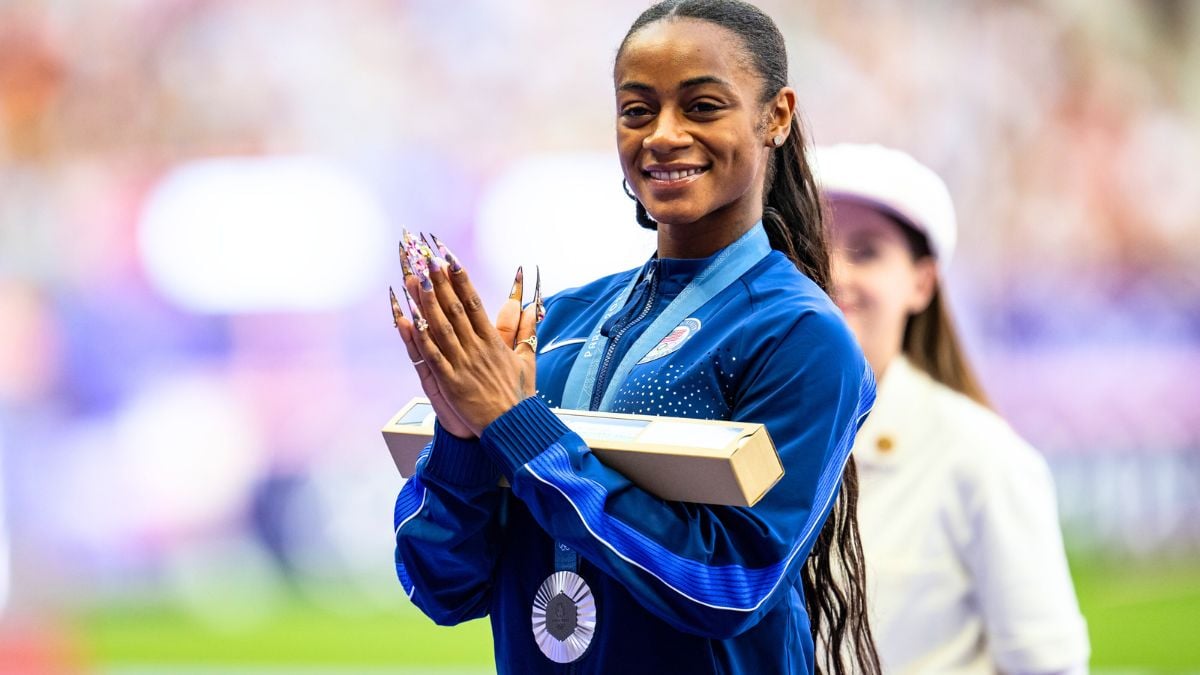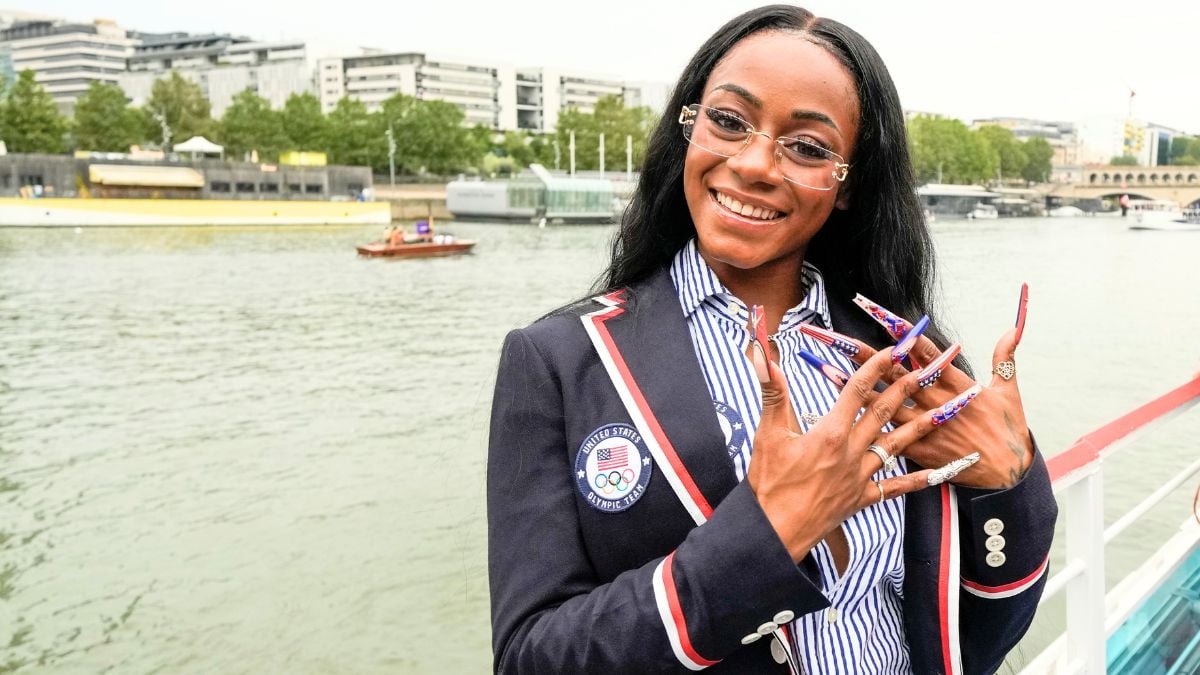Sha’Carri Richardson is one of the United States’ biggest track talents, but her path to winning a silver medal at the 2024 Paris Olympics has been anything but straightforward.
Richardson ran a stunning 10.87 seconds to the second spot on the Women’s 100-meter Olympic podium on Saturday, Aug. 3, but it was not enough to beat Saint Lucia’s Julien Alfred who was 0.15 seconds faster, winning her country’s first-ever medal. As the reigning world champion coming off of the 2023 World Athletics Championships in Budapest, Hungary, the Dallas native was a favorite for the gold, especially with the absence of Jamaican speed stars Elaine Thompson-Herah, Shelly-Ann Fraser-Pryce, and Shericka Jackson, but it didn’t come to pass.
After failing to qualify for the 200-meter final, the silver medal has defined Richardson’s Olympic comeback so far. At 24 years old, these are the athlete’s first Olympics after a shocking suspension kept her away from Tokyo in 2020.
Why was Sha’Carri Richardson absent from the 2020 Tokyo Olympics?

Sha’Carri Richardson’s path to Olympic glory seemed wide open in early 2020 after achieving a 10.86 seconds mark at the June 2020 United States Olympic Trials. However, a urine test conducted after her win spoiled her Japan-bound plans.
Richardson tested positive for THC, the main psychoactive constituent of cannabis, marijuana, and hashish —all prohibited substances under the rules of both the U.S. Anti-Doping Agency and the World Anti-Doping Agency. The standard three-month suspension was reduced to one month after the athlete agreed to complete a treatment program, but it wasn’t short enough to make it to the Tokyo 2020 100-meter competition. While Richardson could, in theory, still make the Women’s 4 × 100 relay race, held at a later date, she was not selected for the team.
The sprinter later told NBC that she had taken marijuana to help cope with the death of her biological mother, about which she learned from a reporter during an interview.
I’m not making an excuse or looking for empathy in my case. However, being in that position in my life, finding out something like that … Dealing with the relationship I have with my mother, that definitely was a very heavy topic on me.”
At the time, Richardson sincerely apologized for the oversight, tweeting out “I am human” in response to the situation.
Many, including athletes Odell Beckham Jr, Patrick Mahomes, and Dwyane Wade, contested the decision and the inclusion of Cannabinoids in the list of banned substances — recreational marijuana use is legal in Oregon where Richardson was tested, and in many other states and countries. A review conducted by the World Anti-Doping Agency in 2022 concluded that, despite the lack of evidence that the drug enhances athletic performance, it still constitutes a danger to athletes’ health and a violation of the spirit of sport.
Richardson, who has been working hard since her setback to live up to the promise she showed as a young athlete coming up at Louisiana State University, may still become an Olympic champion when she joins her teammates in the Women’s 4x100m Relay race later in the week.

